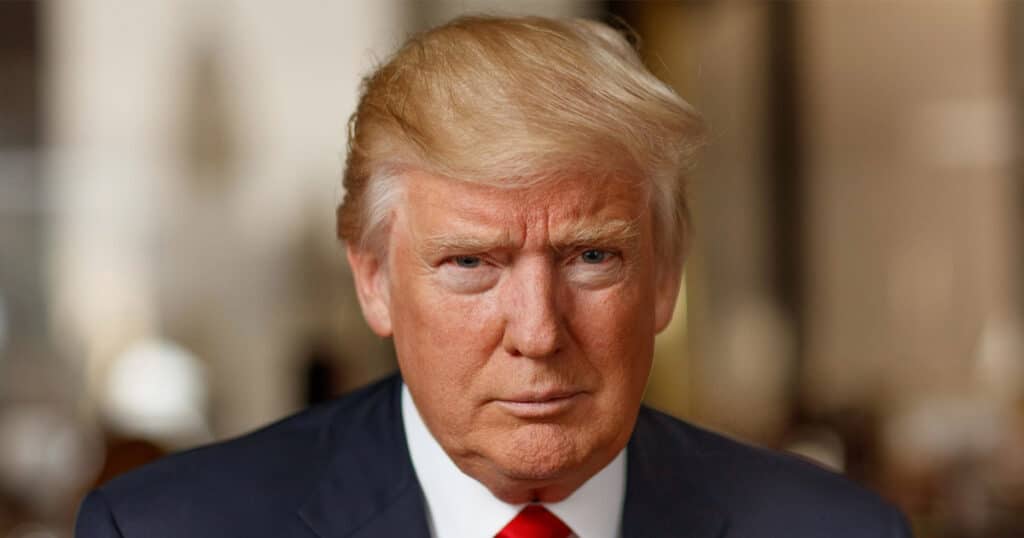
Medicare’s Private Contractors Are Gaslighting Transplant Patients
Once again, the government is getting between patients and their doctors to ration care – and it’s endangering my own family.
Due to rare a lung disease that runs in the McPherson side of my family, two of my siblings have had lung transplants. Further, my sister-in-law has had a liver transplant. When my brother Randy received his transplant four years ago at our local hospital, INOVA, he stayed at our house for months while he recovered. I have personally witnessed the physical and emotional journey of a loved one who needs a transplant – and the relief and joy of being given a second chance through the gift of a donated organ.
Randy’s lung transplant was successful, but we quickly learned it was just the beginning of his journey as a transplant recipient. The complexity and precision needed to keep his newly transplanted organ healthy was intense. Estimates indicate that more than 40% of lung transplants will fail within five years. This is most often due to organ rejection by the recipient’s immune system. Doctors must find a precise balance of immunosuppressive drugs to keep the body from attacking itself.
Fortunately, there are advances in molecular diagnostics that give doctors the ability to monitor the health of organs more effectively. This largely replaced the previous surveillance method, which includes costly, painful biopsies. Biopsies are invasive procedures that require recovery time and have complication risks. Before the non-invasive molecular tests were available, Randy might have had to endure eight to 16 invasive biopsies in his first year post-transplant. Now, he just has his blood drawn. Access to these non-invasive surveillance tests is vital for identifying organ injury or rejection. Rejection can occur without signs or symptoms, and detecting it early can help prevent irreversible damage. So, when I heard that coverage for these tests was being dramatically curtailed, I suspected a faceless, unaccountable bureaucracy was the culprit. I was right.
Earlier this year, one of Medicare’s private contractors dramatically limited coverage for these tests without any opportunity for public comment, which violated the Medicare statute. The decision was made by Palmetto, a private contractor that operates Medicare’s Molecular Diagnostic Services Program (MolDX), with opaque accountability and oversight from the Centers for Medicare and Medicaid Services (CMS).
Doctors were given 30 days’ notice that they would be left without this critical surveillance tool to help manage organ rejection. Patients, such as my brother Randy, are left wondering if they will be able to protect their transplanted organ.
The Honor the Gift coalition, comprising 13 patient organizations such as the Lung Transplant Foundation, Transplant Life Foundation, and Transplant Recipients International Organization, alongside physician organizations like the American Society of Transplant Surgeons, American Society of Transplantation, International Society for Heart and Lung Transplantation, have written to the government to advocate for this cause. Regrettably, their appeals have been met with silence. They have had to turn to the public and Congress for assistance.
My friend, Congressman Michael Burgess (who is a medical doctor), along with 14 other members of Congress, sent CMS Administrator Chiquita Brooks-LaSure a letter asking for an explanation and calling into the question the process. They wrote, “This approach effectively silenced the voices of the transplant community, including patients, healthcare providers, and experts in the field.” Importantly, they noted that MolDX’s policy may especially harm poor communities that have “less access to specialized transplant centers, making non-invasive diagnostic tests even more critical for their ongoing post-transplant care.” Additionally, this decision disproportionally impacts black and Hispanic patients who represent 40% of transplants in the U.S., despite being only 32% of the population.
Rather than question its private contractor, review evidence, or listen to the front-line doctors using the tests, CMS doubled down on its decision. CMS issued a statement denying there was a coverage change and claimed it was just a clarification of coverage, asserting “… neither CMS nor the MACs have made changes that affect patient’s ability to have blood tests used to monitor organ transplantation.”
CMS’s private contractor is gaslighting Medicare transplant patients, their loved ones, and the physicians who care for them. It is using its private contractors and sub-regulatory policymaking to do so. Despite claiming that there was no change, now MolDX is attempting to promulgate these changes in coverage through a new proposed “Local Coverage Determination” (LCD). It is doing so while it continues to claim that substantial coverage changes are mere “clarifications.” CMS is also inappropriately limiting the comments it will consider to those related to clarity, not the decision itself. This is pure bureaucratic doublespeak and misdirection.
Dr. Burgess and Congresswoman Anna Eshoo sent a follow-up letter to CMS writing, “Your response letter dated September 26, 2023 did not answer our questions. Your letter also asserts beneficiary access to noninvasive post-transplant blood testing remains unchanged. This is in stark contrast to what transplant patients and physician associations nationwide have shared with us.”
The Wall Street Journal editorial board has published three brilliant editorials in the last several months on this issue. The board described the nonsensical actions CMS and Palmetto have taken and the economic short-sidedness of the decision. Ultimately, the editorial board called out this overreach for what it is: “MolDX and CMS may not admit it, but this looks like a classic case of government denying coverage to save money, though it isn’t clear it really will save money or lives if more transplants are rejected. This rule by bureaucratic diktat is the future of medicine as government dominates payments.”
The change in Medicare coverage puts patients’ health in jeopardy. It goes against medical evidence. And it is irrational economics. The surveillance blood test costs an estimated $3,000 each time, but lung and heart biopsies – which are invasive, painful, and damage the transplanted organ each time – can be triple the cost (if there are not complications).
All of this is happening under the watch of President Joe Biden, the Cancer Moonshot President, who claims he supports health innovation and signed a bill trying to make transplant organs more available. What is he doing to protect the gifted organs already in transplant patients while CMS is running amuck?
As we await the final decision from CMS, we will soon discover if government-led health care that dictates and rations medical care has been the president’s real agenda all along.
This article was originally published by RealClearPolitics and made available via RealClearWire.


